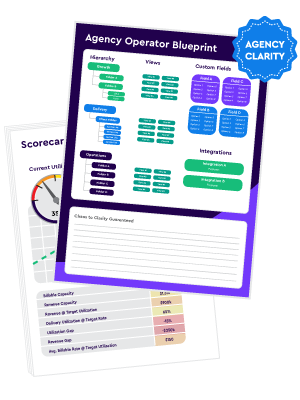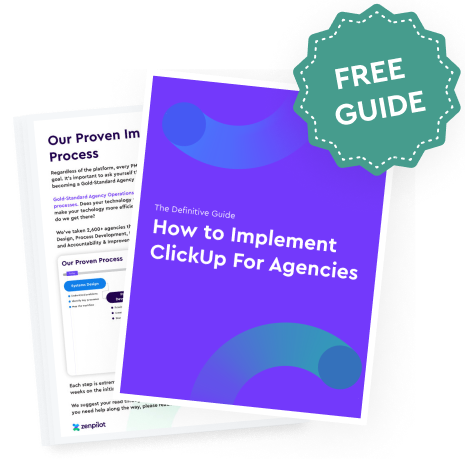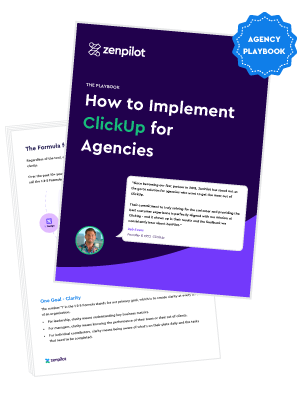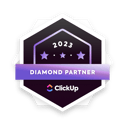Why Your Media Brand Needs A Distinct Identity
If you currently have a company podcast, you may be tempted to simply tack on other media channels and call it a “brand.” Don’t do this!
As James explained, your media brand should have a completely separate identity from your corporate brand.
Here’s why:
“Your positioning for your content is around your product, and it's very closely tied to the thing you do.
But what we realized is, if you want to attract your entire market, you have to be talking about things that the market wants to talk about and is interested in learning about.
And that's more often than not not going to be related to your product or service.”
Essentially, people want to consume content about topics they care about—not listen to a monotonous podcast that only ever oscillates around problems that your company’s product just happens to solve. So your media brand should fill this need.
James also noted how having a distinct brand helps you reach buyers who aren’t ready to purchase yet:
“You need to create content that is ready to attract the 97% of your market that's not ready to buy today.”
Watch: Building a Better Brand with ClickUp’s Melissa Rosenthal
What Should You Include In Your Media Brand?
Alright, so you’re sold on creating a distinct media brand. But what exactly should it include?
According to James, your brand needs to have:
- A podcast
- A newsletter
- A presence on YouTube
- Social media accounts
As he explained:
“We wanted to create top-of-funnel content that can reach buyers across this new media landscape.”
Essentially, you need omnipresence. Each channel serves a specific purpose:
Podcasts build loyalty and allow you to dive deep into topics. Newsletters help you collect first-party data and retain audiences. YouTube expands your reach. Social media encourages sharing and engagement.
You don’t necessarily need to create a ton of content for each channel. Start with a consistent presence, then expand based on where you gain traction.
What Makes A Successful Podcast Strategy?
Now that we’ve covered the full brand, let’s talk podcast strategy. I know you’re wondering:
Should we focus on interviews, or developing our own thought leadership?
James has a nuanced perspective here. He explained how they moved away from interviews:
“The reality is fewer people in positions of authority that you actually want to build relationships with… fewer and fewer people are saying yes to being on a show.”
However, he noted interviews still have a place as part of a larger thought leadership strategy:
“Maybe it's a couple people internally at your company—maybe occasionally you bring on a guest when it serves the topic you're wanting to talk about.”
Essentially, don’t rely entirely on guests, but do utilize interviews strategically when they support your narrative. Develop your own point of view, and amplify it through other voices.
On the newsletter front, James had some great insights as well.
He shared how newsletters help you enrich data and retain readers:
“You can grow an audience—collecting first party data with a newsletter—that's not possible with other channels. You can enrich that data and then push other elements of your media brand to those people.”
Newsletters also allow for targeted follow up:
“You can do retargeting campaigns against that data, you can push other elements of your brand through the newsletter.”
The takeaway? Leverage newsletters to build direct audience relationships beyond just driving listeners to your podcast.
The Only Fully Guaranteed Agency Operations Improvement Framework
Get 360 clarity into your operations or your money back, guaranteed.

How Can Media Brands Impact Your Paid Advertising?
Here’s where things get really interesting.
According to James, creating owned media allows you to depend less on paid advertising over time.
As he put it:
“These companies are spending hundreds of thousands of dollars a month on paid media to get in front of who they want to influence. What we’re saying is: don’t stop paid media, but carve out a percentage—5, 10% of what you’re spending—to build your own audience.”
Then, you can gradually reduce paid spend as your owned channels grow:
“Start filtering people into your ecosystem so you’re not a slave to that hamster wheel of constantly having to pay just to access your audience.”
This strategy allows you to take back control of your marketing and reduce waste.
How Did Sweet Fish Identify the Right “Villain” for Their Brand?
James shared an interesting insight around the importance of developing a “villain” that your brand positions itself against. As he put it:
“In any classic Brand Story there is a villain that you're trying to attack.”
For Sweet Fish, it took many long conversations to finally land on “commodity content” as their villain. James admitted:
“There was no clean process for us to go through to land on it. It's lots of conversations; it's lots of feedback on LinkedIn posts; it's hours-long conversations with different people on our team.”
Once they defined the villain as commodity content, the positioning for Sweet Fish’s media brand approach became much clearer. James emphasized first defining the villain, before even fleshing out the solution.
This resonated with me, as it’s easy to get focused on talking about what you do versus what problem you’re solving. But without a clear “villain”, it’s harder for people to feel emotionally invested in your brand’s purpose.
BONUS
Download the Complete ClickUp for Agencies Guide FREE
The 47-page guide includes graphics, checklists, and links to how-to videos so you can actionize your ClickUp plan.

Change Management: What Mistakes To Avoid When Shifting Your Strategy
As you might expect, pivoting to a media brand approach didn’t happen overnight to Sweet Fish Media, as they were quite used to the way they were doing things thus far.
James was very honest about the challenges his agency faced.
Here are few mistakes to avoid as you make the transition:
- Assuming your team will align quickly. As James said, “It’s been easier to get the external market aligned than our own team.” Re-education takes time.
- Underestimating the work involved. It took them over a year of conversations to land on their “villain” concept and messaging. Painstaking work is required.
- Letting the “old default” linger. Despite the new vision, James said his team still defaulted to “interview-based podcasts” until repeatedly reminded. Old habits die hard.
- Attempting to change remotely. James noted the power of in-person workshops; it was only when the team met and person that they were able to build alignment and get people “singing from the same hymnal.”
James’ story shows that shifting your strategy requires patience, consistent communication, and team alignment. Do the hard work of enabling cultural change.
Read: The 6 Most Important Steps To Effective Agency Change Management
Resources: Key Recommendations From James
Before we wrap up, I wanted to share some quick recommendations that James mentioned during our chat:
- The Infinite Game by Simon Sinek – An inspiring book about leading through the lens of playing an infinite game rather than trying to “win.”
- Love Does by Bob Goff – An influential book for James on building a people-first company culture.
- Sales Feed by Vidyard – A great example of a B2B media brand with entertaining, valuable content.
- PeerSignal by Keyplay – Another excellent media brand providing data-driven market research.
- Kauffman CPA – The accounting firm James relies on as a strategic partner for his agency. Highly responsive service.
The Takeaway
It’s clear a single podcast is no longer enough in today's crowded marketing space. You need an integrated media brand that stands separate from your company and your product, positioned across multiple channels to fully capture your audience’s attention.
Don't let your marketing strategy get stuck in the past. With a media brand filled with valuable content tailored to your audience's interests everywhere they consume media, you'll be amazed at the growth, retention, and reduced ad spend you can achieve.
Yes, it takes work to realign your team and messaging. But resist the temptation of quick fixes.
Next year when you're enjoying accelerating growth, you'll be glad you made the shift.
Turn Chaos Into Clarity.
We're your agency operations pilot.
You can build a happier, more productive, more profitable team with ClickUp. We'll show you how.
Bridging Your Branding And Your Operations
In my experience, branding is all about consistency.
It sucks when you want to implement consistent messaging across your assets, but half of them get stuck with old branding because you never took the time to put together processes and checklists for updating them.
In this way, even the best branding can be hurt by bad operations.
Luckily, if you’re interested in improving your operations—so things never fall through the cracks again—you’re in the right place.
We can build an easy-to-use single source of truth for you for all your work (based on ClickUp or Teamwork.com) so that your team carries out work consistently, deliverables don’t get missed, and you build out a robust “second brain” of processes, templates, and SOPs for your business.
Read about what we can do for you.
And don't forget to follow ZenPilot on YouTube and Agency Breakthrough wherever you listen to podcasts!






